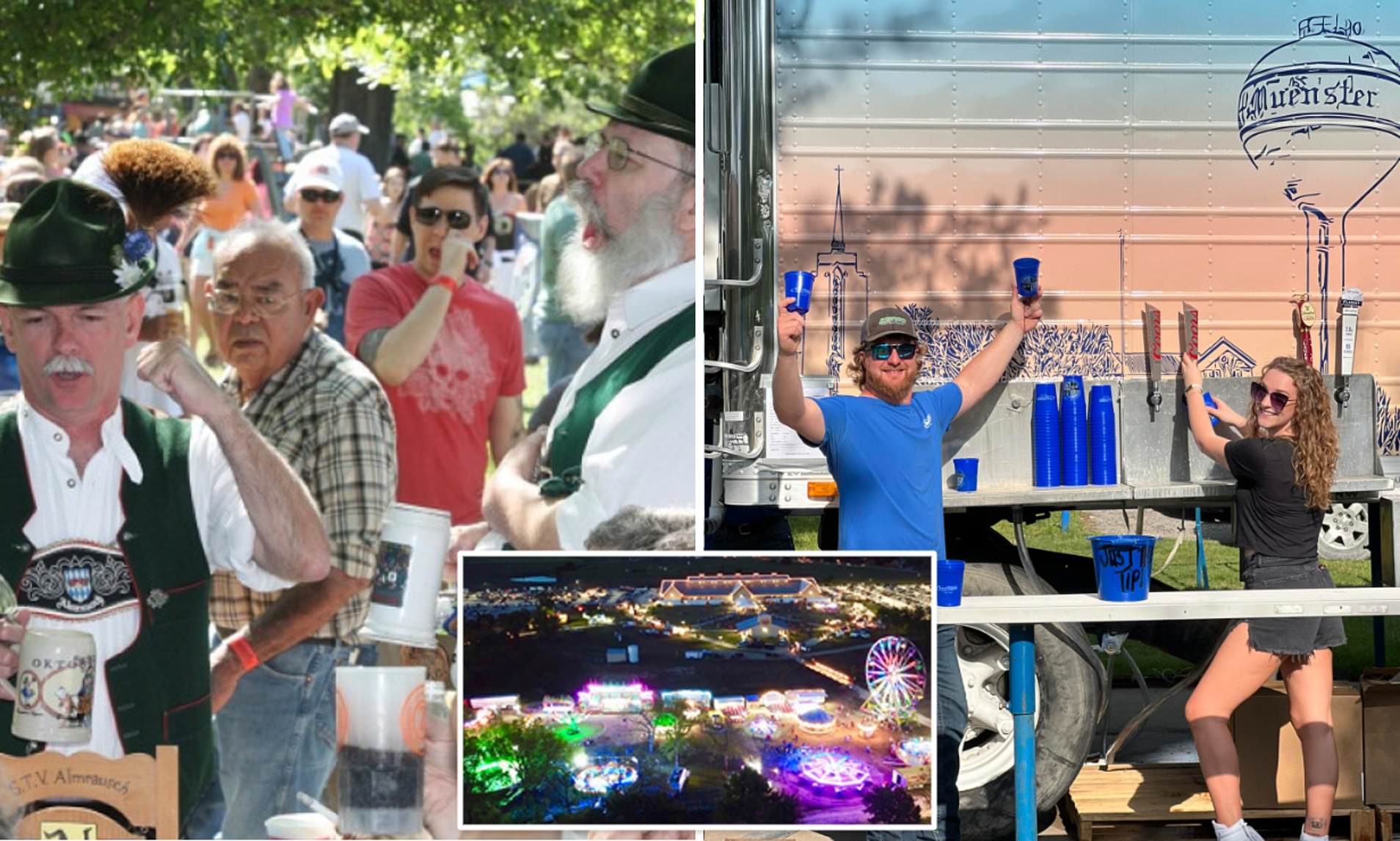
TINY TEXAS TOWN ROILED BY NEW GERMAN BEER FESTIVAL
- Muenster, a rural community, has been hosting Germanfest for decades
- But this year a rival event called Party In The Park sprang up causing tensions
- The town was founded by German settlers in 1889 and the culture has endured
A Tiny Texas town has been torn in two by a rift over rival beer festivals.
Tensions among locals in Muenster, a rural community settled by German immigrants, have been brewing over the competing events which happened over three days in April.
The dispute began over differing opinions about how to distribute the proceeds from beer sales at the town's biggest event of the year - Germanfest - and the influx of tourists to the formerly community-focused event.
For the first time in decades, a rival event sporting beer, sausages, music, and lederhosen-clad natives sprang up on the other side of Division Street during the same weekend.
'It put tears in my eyes,' local resident William Fisher, 83, told the New York Times. 'All of a sudden it seems like the town went haywire.'
Many of the people who opted for the new festival - Party In The Park - said the original celebration had been overrun by tourists.
Germanfest now attracts around 20,000 visitors each year, something locals have said has put a dampener on its authenticity.
It all began in 2018 when the festival moved to a new, spacious indoor space at the edge of town which allowed more stalls and more room for visitors.
'It became more of an outsider thing and lost that local touch,' Leslie Hess Eddleman, a dental hygienist and former Dallas Cowboys cheerleader told the NYT. 'They turned it into this big show for out-of-towners, but not for us.'
But the final straw for organizers to launch the rival festival was about the beer contract as it came up for renewal.
A local volunteer organization called The Jaycees had been selling the beer for years while taking an 80 percent cut for its charitable services.
But the Muenster Chamber of Commerce, which coordinates Germanfest, wanted to renegotiate to secure a more even split in return for helping decorate.
'We have 100 percent of the risk,' the president of the chamber and a county commissioner Matt Sicking told the NYT. 'If it's a rainout, we lose everything.'
'We can sit around here moaning all day, but it's not going to change anything,' he added. 'It's going to work out the way the good Lord wants it to.'
Wayne Klement, 74, a Jaycee senator, told the newspaper that no-one would budge on either side, meaning their only option was to launch 'a party of our own'.
Klement said the Jaycees had given out $165,000 in donations harvested from the festival last year, mostly to local families in need, but the cost of hosting event was becoming more expensive.
'We depend on this weekend for our club,' he said.
Several local groups including the Knights of Columbus and the Boy Scouts joined the new event, pledging allegiance to the Jaycees.
Germanfest was launched in Muenster in 1976, and it became an instant success, attracting people from nearby Dallas and beyond. It offered tug-of-war games, arm wrestling and beauty contests.
The key component - the beer - was brought in by the Jaycees in a large refrigerated trailer truck with enough space for 200 kegs and 32 taps.
Meanwhile, the original event had to find an alternative source for its beers this year.
Social media posts showed that both events appeared well-attended, with the usual stalls going strong on both sides of division street.
Muenster was founded in 1889 by German Catholic settlers Carl and Emil Flusche, and more than 90 percent of the population is German and Catholic to this day.
Many of the residents still speak German and the traditions played out at the festivals are an important symbol of their identity and culture.
Read more 2024-05-05T14:27:31Z dg43tfdfdgfd